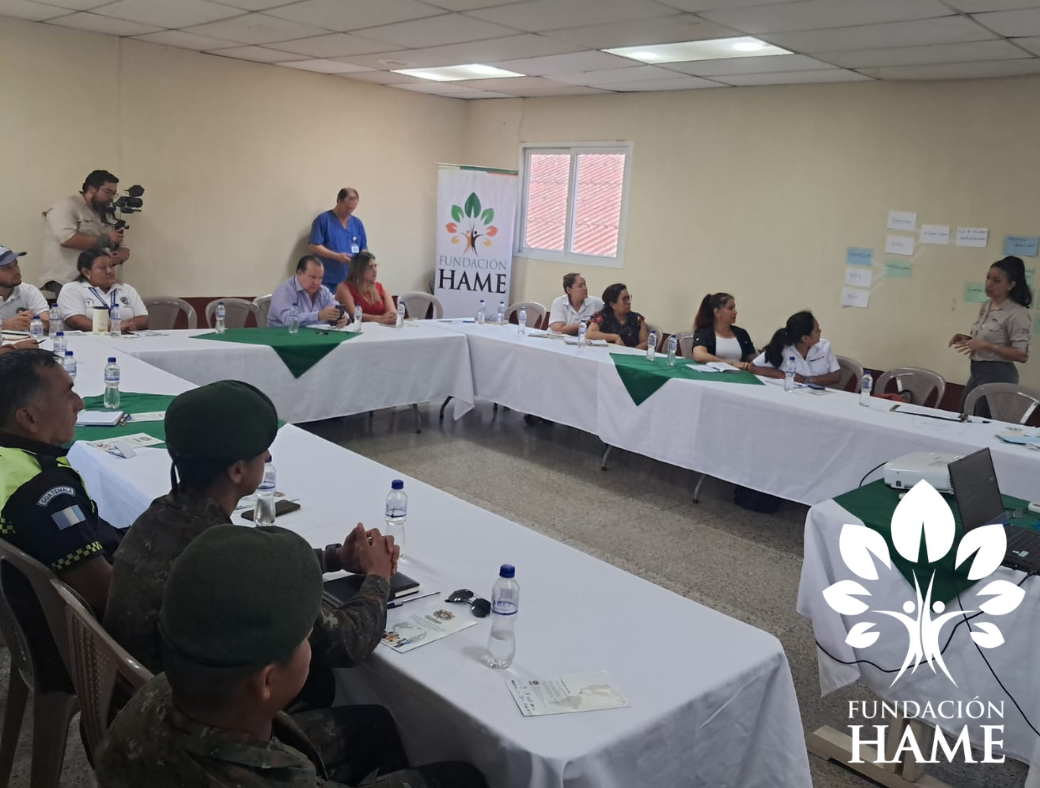As part of the project "Creating socioeconomic opportunities as alternatives to irregular migration in Coatepeque, Quetzaltenango," implemented by Fundación HAME, the second working meeting was held with the goal of strengthening local coordination around migration and socioeconomic inclusion.
The activity took place on May 28, with the participation of representatives from the Municipality of Coatepeque, government entities, non-governmental organizations, and civil society actors.
During the event, progress was made on three strategic lines of action:
- Support for the formation of the Monitoring Committee that will accompany the Municipal Migrant Unit in promoting spaces for dialogue and coordination.
- Building new strategic alliances to support the implementation of public policy.
- Dissemination of the Municipal Public Policy for Socioeconomic Inclusion as an Alternative to Irregular Migration.
The event was attended by key institutions such as the Coatepeque's Health Center, Swiss Contact, Coatepeque's Public Hospital, the Public Prosecutor's Office, the Guatemalan Army, the Municipal Transit Police, the Judicial Branch, Fundabiem, the Secretariat of Social Works of the Wife of the President of the Republic of Guatemala, the Ministry of Education, the Ministry of Social Development, and the Secretariat of Food and Nutritional Security.
During the session, led by the HAME Foundation and the Municipality of Coatepeque, printed material prepared by the HAME Foundation and Swiss Contact was distributed to disseminate the policy.
The participating institutions expressed their interest and commitment to the initiative, as well as their willingness to collaborate in the implementation of the public policy. In addition, concrete proposals were shared to strengthen the local response to the structural causes of irregular migration.
The main outcome was the formation of a Monitoring Committee, made up of representatives from the participating institutions. They will assume an active role in monitoring and implementing the policy in the region.


 English
English  Español
Español 